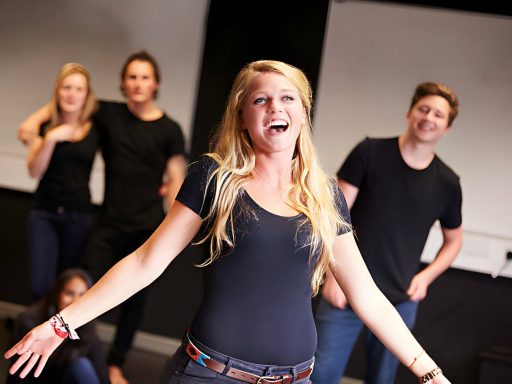All we are going to talk about here are messages that relate only to the physical, external dimension. Whether a person is beautiful and does not possess the worlds, or whether a person is not beautiful or attractive and has a bad perception, they are not. If that were the case, wouldn’t the world be made up of two different orders, the beautiful and the ugly? Besides, a physical inability does not make anything impossible, it is only in the human mind that these abilities end.
So, you use a language to communicate on earth and you have that language for life. You learn it once and you don’t have the opportunity to cut it off as finished. Language and its development is a living thing that takes a certain form throughout your life. I believe that your self-confidence should definitely reach a certain level when you learn a language. Think of yourself as a baby. Do you think there is a chance that the baby will say, “I have no self-confidence, I can’t do this job and I can’t learn the language, I’d better refuse or postpone my thoughts? Then the same proportion of that chance applies to us.
The most beautiful person in the world and the most unattractive person in the world both use a language. That language ultimately depends on the way you present yourself and your approach. Learn to direct your energy to different areas. You should redirect the energy your body allocates to excitement to focus, the energy it allocates to stress to relaxation, and the energy it allocates to fear and lack of confidence to a level of confidence.
I wanted to emphasize “one level” here because when the dosage of this confidence and self-confidence is high, you can be off-putting to the other person when you are a beginner or when you make a mistake. Yes, people can easily see that. So be confident, but don’t forget to be humble. When you overcome these three walls of prejudice against learning, against yourself, and against the environment, you will find that things become much easier and more relaxed.
So be yourself and believe in yourself. Appreciate yourself and love yourself. A person who has succeeded in loving himself will certainly be able to create points where he can endear himself to others. Not to mention learning a language, it will flow like water and find its own way.
Frequently encountered inquiries pertaining to the influence of physical appearance on language learning
Does being attractive make it easier to learn a language?
No, language learning is primarily a cognitive process that isn’t directly influenced by physical appearance. While being attractive may affect social interactions, it doesn’t inherently impact one’s ability to learn a language.
I’m not confident in my appearance. Will this hinder my language learning progress?
Your confidence in your appearance doesn’t directly affect your language learning abilities. Confidence plays a role in overall self-esteem, which can indirectly influence motivation and perseverance in language learning tasks. However, it’s important to focus on building confidence in your linguistic abilities rather than fixating on physical appearance.
I feel judged because of how I look when practicing speaking. How can I overcome this?
Feeling judged during language practice is a common experience, but it’s essential to remember that making mistakes is a natural part of the learning process. Focus on your progress rather than perfection, and remind yourself that everyone makes errors when learning a new language. Additionally, practicing in a supportive and non-judgmental environment can help alleviate these feelings.
Will others judge me based on my appearance when I speak a foreign language?
While some people may make assumptions based on appearance, it’s important to remember that language proficiency is what ultimately matters in communication. Focus on improving your language skills and conveying your message effectively, rather than worrying about others’ perceptions of your appearance.
I’m concerned that my accent will make me sound less credible. How can I overcome this?
Accents are a natural part of language learning and shouldn’t be a source of insecurity. Embrace your accent as a unique aspect of your language journey. Additionally, practicing pronunciation and listening to native speakers can help improve clarity and confidence in spoken communication.
I don’t feel comfortable speaking because of my physical appearance. What can I do to feel more confident?
Building confidence in language speaking involves practice, patience, and self-acceptance. Focus on your progress and the effort you’re putting into learning rather than dwelling on physical appearance. Surround yourself with supportive language partners or join language learning communities where you can practice speaking in a non-judgmental environment.
Does physical attractiveness affect language fluency or vocabulary acquisition?
No scientific evidence suggests that physical attractiveness directly impacts language fluency or vocabulary acquisition. Language learning abilities depend on cognitive factors such as motivation, aptitude, and exposure to the language, rather than physical appearance.
Can improving my physical appearance enhance my language learning abilities?
While taking care of your overall well-being, including physical appearance, can contribute to confidence and motivation, there’s no direct correlation between appearance and language learning abilities. Focus on developing effective learning strategies, consistent practice, and exposure to the language to improve proficiency.









